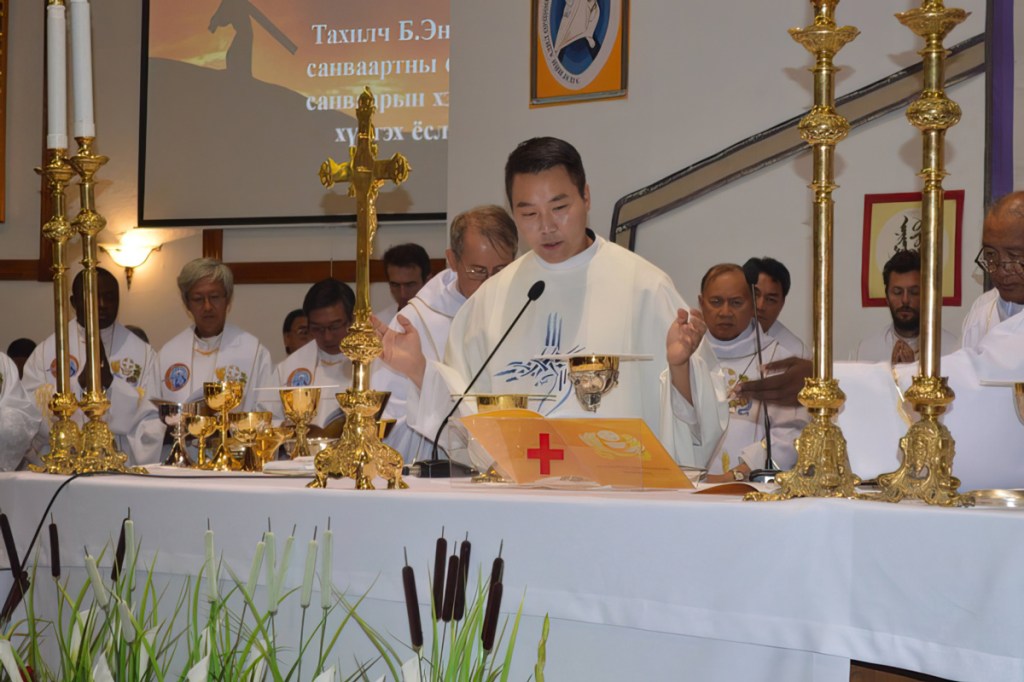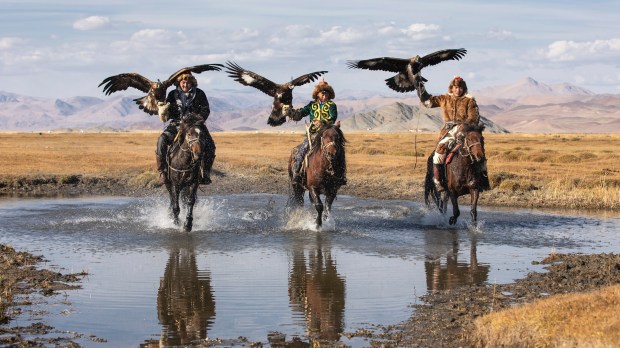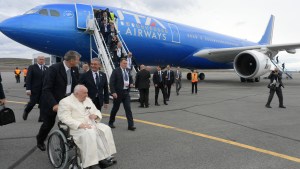Lenten Campaign 2025
This content is free of charge, as are all our articles.
Support us with a donation that is tax-deductible and enable us to continue to reach millions of readers.
From August 31 to September 4, 2023, Pope Francis will visit Mongolia, home to a tiny Catholic community. To help you understand this trip, I.MEDIA takes a look at the current state of Christianity in this large country with a Buddhist tradition.
31
The number of years Catholics have been present in the country in modern times. The first missionaries, members of the Congregation of the Immaculate Heart of Mary (CICM) or Scheutists, arrived in Mongolia in 1992. The first religious sisters arrived in 1995. The first bishop, Wenceslao Selga Padilla, was ordained in 2003, a year after the former sui iuris mission in Ulaanbaatar was elevated to the rank of apostolic prefecture.
1,500
The number of Catholics in Mongolia, according to Matteo Bruni, Director of the Holy See Press Office. As of November 31, 2022, the Pontifical Yearbook counted 1,394. Catholics represent around 0.04% of Mongolia’s population, making it one of the countries with the fewest Catholics in the world. In 1992, there were no Catholics officially registered in the country. In 2012, there were 725.
But, Mongolia is not the country with the fewest Catholics that Pope Francis has visited: In 2016, the pontiff visited Azerbaijan, where the Catholic population was limited to 560 people (600 in 2023).
(Pontifical Yearbook 1992-2012-2016-2023)
63,600
The number of Christians in Mongolia. The majority are Protestants (36,100) and Evangelicals or associated groups (23,000). The Russian Orthodox Church numbers 2,650. Christians represent 2.1% of the Mongolian population, compared with 3% for Sunni Muslims, 3% for traditional religions and 53% for Buddhists. The remaining 39% of the population is atheist or agnostic.
(Holy See figures)

25
The official number of priests in Mongolia, according to the Holy See. There are six secular priests (meaning they are not members of religious congregations), including two indigenous priests; one was ordained in 2022. The other 19 priests are religious missionaries. They belong to the Scheutist, Consolata, or Salesian missionary congregations. The diocese also has Fidei donum priests.
(Pontifical Yearbook-2023)
10
The number of parishes in Mongolia in 2023 according to the prefecture. The Holy See counts only eight, a sign of the recent opening of two parishes, I.MEDIA has learned from Mongolian Catholic sources. The Catholic Church officially counts only one church, the Cathedral of Saints Peter and Paul in Ulaanbaatar. However, in reality, the capital of 1.4 million inhabitants (43% of the country’s population) has 5 other parishes, two in the northern towns of Darkhan and Erdenet, one in Arvaikheer in the center of the country, and one in Zuunmod on the outskirts of the capital.
57
The number of religious men and women present in the Apostolic Prefecture of Ulaanbaatar. 24 are men, 33 are women. This includes Scheutists, Consolata missionaries, Salesians, Jesuits, missionary Sisters of Charity (Mother Teresa), missionary Sisters of the Immaculate Heart of Mary (De Jacht), Sisters of Saint Paul de Chartres, and sisters from the Korean INBO congregation. Nearly a third of the missionaries in Mongolia are of Korean origin, according to AsiaNews. Polish laypeople from the Promisja movement are also present.
(Prefecture website, Holy See figures)
54
The number of institutes run by the Catholic Church in Mongolia. Almost 50 — specifically 48 of them are charitable institutes for the poorest or most vulnerable populations, notably the disabled. Six are educational institutes.
(Holy See figures)
6
The diocese currently has 6 seminarians. Some of them are studying in South Korea.
35
The number of baptisms in Mongolia in 2022, down as compared 2012 (69). According to several missionaries interviewed by I.MEDIA, the cause of this drop is to be found in the aggressive competition from certain Protestant and Evangelical churches, but above all in the advent of consumer society in Mongolia.
(Annuaire pontifical-2012-2023)
16
Since a law on religions was passed in 2020, missionaries have been forbidden to teach catechism to children under 16 without parental consent. Also, catechism must be taught in churches and official Church buildings, and therefore not in schools or charitable institutes. Priests are not allowed to be identifiable outside churches.
According to several Mongolian religious sources interviewed by I.MEDIA, the government has taken advantage of the post-Covid period to tighten its control over “non-Mongolian” religions. Negotiations are underway, however, between the Holy See and the Mongolian government to facilitate the arrival of Catholic missionaries, said Matteo Bruni.




